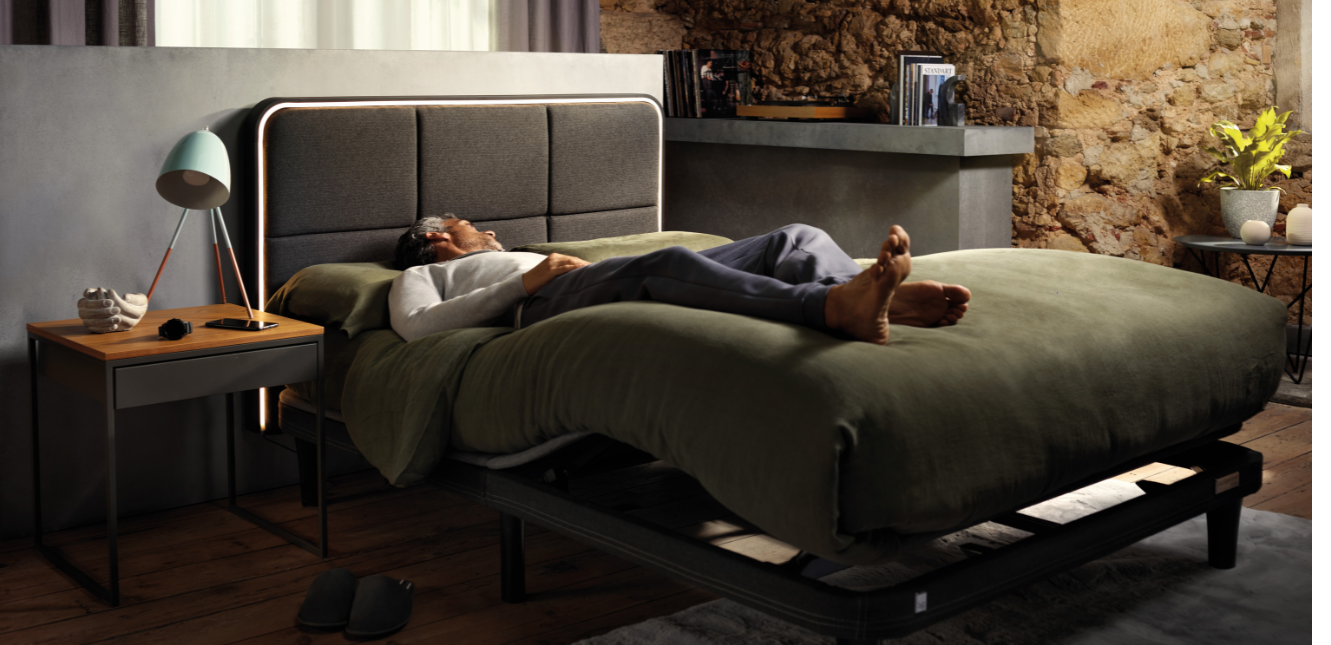Resting with your feet raised isn't just for daytime relaxation. It can also be a game-changer for your sleep.
This age-old advice of "putting your feet up" after a tiring day or an intense workout session isn't just about comfort—it's backed by a handful of health benefits. Leveraging modern technology, adjustable beds can help you gain these benefits during your sleep.
But what exactly are these benefits, and are there any drawbacks to sleeping with your feet and legs elevated? Read on to learn more!
Why You Should Consider Elevating Your Legs While Sleeping
Throughout the day, our legs bear the brunt of our body weight, leading to fatigue. Lying flat does alleviate some pressure, but elevating your legs during sleep offers complete rest to the leg muscles, allowing them to repair for the next day. Here are some of the most common benefits of sleeping with your legs elevated:
Reduced Leg Pressure
Elevating your legs at night can entirely remove the pressure of body weight, providing a restful period for your leg muscles to rejuvenate.
Improved Blood Circulation
Our leg veins work tirelessly, pushing the blood upwards to the heart against gravity. In cases like varicose veins, blood may pool in the legs, making them feel heavier. Elevating your legs flips the role of gravity, helping it move the blood towards your heart, preventing blood pooling.
Reduced Risk of Blood Clots
Enhanced circulation from leg elevation can lower the chance of deep vein thrombosis (DVT), a condition where blood clots form in the legs, which can potentially travel to the heart, lungs, or brain.
Relief from Ankle Swelling
Edema, or the buildup of fluid in the legs, can cause inflammation and pain. By raising your legs while sleeping, the fluid is pulled away from your feet, reducing swelling.
Relief from Chronic Back Pain
Sleeping with elevated legs can potentially alleviate pressure on nerves in the back and legs, especially for those sleeping on their back. This posture reduces the pressure on the sciatica nerve that runs from your lower back down both legs.

Who Might Benefit Most from Elevating Legs During Sleep?
While anyone who sleeps on their back can benefit from sleeping with their legs elevated, it's particularly advantageous for individuals with specific health conditions, including:
- Sciatica
- Congestive heart failure
- Kidney or liver diseases affecting blood circulation
- Varicose veins or other vein diseases
- Pregnancy
- Athletes or individuals standing all day at work
RELATED: 10 Health Benefits of Adjustable Beds
Possible Drawbacks of Elevating Your Legs While Sleeping
While many may find that sleeping with legs elevated is beneficial, some may experience numbness in their legs or feet. Others might experience rare side effects like muscle cramps in the calves or feet due to the elevation.
Elevate Legs Effortlessly With Zero Gravity Technology
Wondering how to sleep with your legs elevated? While there is always the trick of stacking pillows, it’s not exactly the most comfortable. Luckily, many of Ergomotion's adjustable beds come with a zero gravity position feature.
This feature elevates your head and legs, positioning you comfortably with your head and feet slightly higher than your heart. This position brings all the benefits of both sleeping with your head and legs raised, and is particularly beneficial for individuals dealing with snoring, sleep apnea, leg swelling, varicose veins, acid reflux, GERD, or neck and back pain. Moreover, zero gravity is a fantastic choice for fitness enthusiasts as this natural position can help muscles and joints recover post-workout or high-intensity training.

